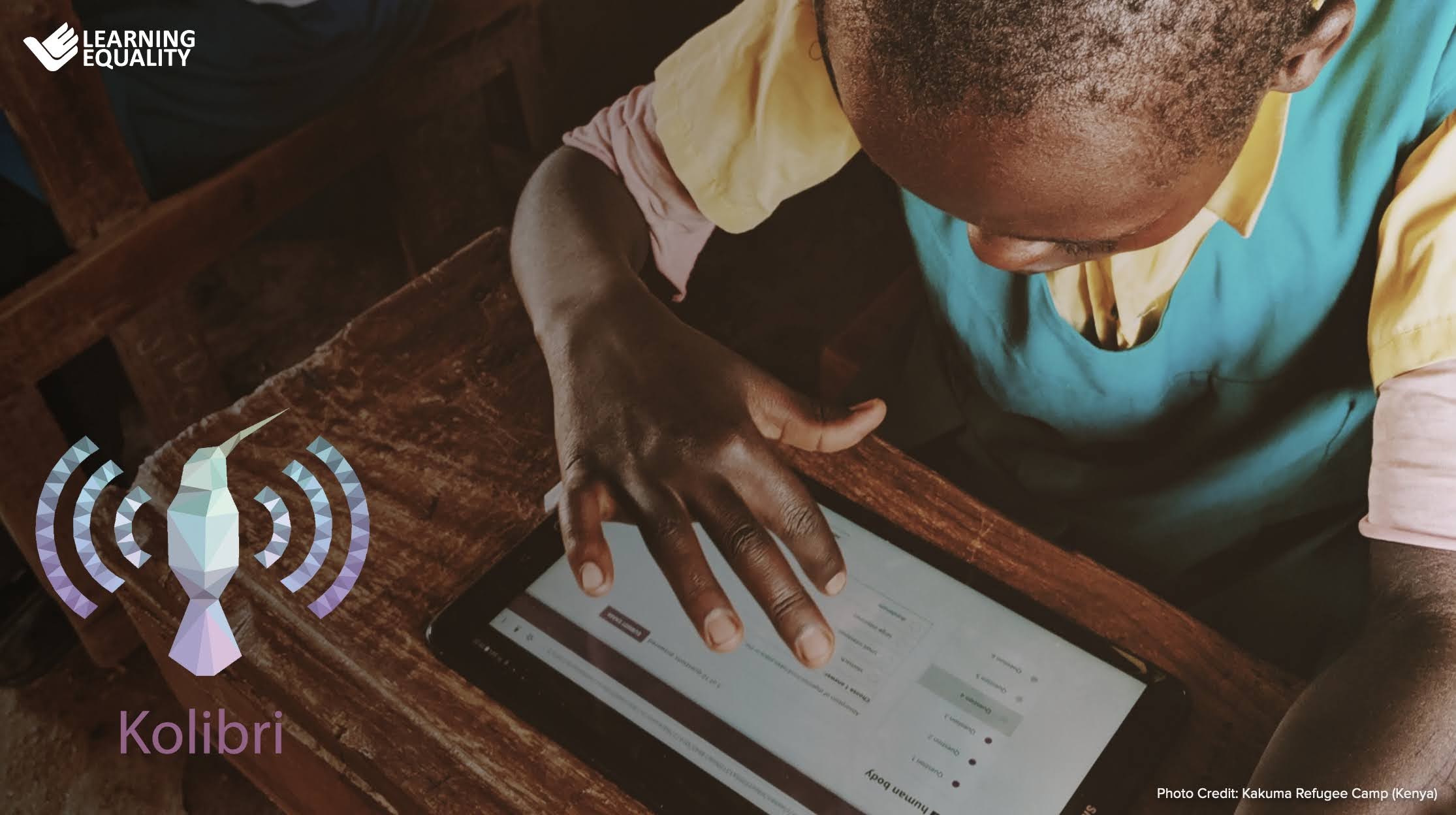
Kolibri is a free and open source, end-to-end suite of products and tools especially designed for offline-first teaching and learning with technology but without requiring the Internet. It is focused on overcoming infrastructural barriers that prevent equitable access to quality education for learners in low-resource and low-connectivity contexts; on increasing the availability of open learning materials suitable for many curricula, learning goals, and situations; and on fostering innovative pedagogy and effective learning outcomes.
It is centered around the offline-first Kolibri Learning Platform which is designed to support both independent, self-directed learning, as well as differentiated and group learning facilitated by an educator. Beyond this, the Kolibri Ecosystem encompasses a set of interacting products, including the online Kolibri Studio curricular tool where materials can be uploaded, aligned to curricula, remixed and organized; the Kolibri Content Library, containing over 159,000 openly licensed resources in varied subjects and grade levels, and in 173 languages, aggregated for offline use; the Kolibri Edtech Toolkit of resources to support training of trainers and implementation of Kolibri, and the Kolibri Data Portal for centralized aggregation and exploration of Kolibri learning data.
What makes Kolibri unique is that it places the needs of learners in low-resource, low-connectivity contexts at the center of its design. It is not limited to a particular type of hardware or hardware model, which affords flexibility of its use along a continuum of available connectivity infrastructure, and is designed for use on existing and legacy devices so that new infrastructure is not always needed. Its Learning Platform contains a lot of the functionality available in traditional online learning management systems, but with a user design, and methodology for pedagogical support that is responsive to the needs in these learning environments. It strongly emphasizes support to educators through built-in functionality to support differentiated learning, and its Toolkit focuses on the competencies needed for use of Kolibri in varied blended learning contexts. Lastly, it contains its own data replication mechanism that allows for collection of data without the Internet that can ultimately be used to drive data-informed decision making, and is data that is often otherwise not available in low-connectivity learning settings.
From formal school environments to non-formal learning environments, such as at home, to other informal environments, such as refugee settlements, community centers, correctional facilities, hospitals, and more, Kolibri has been used in over 220 countries and territories to date, benefitting millions of learners and educators living in low-resource, low-connectivity contexts.
United States, San Diego, CA
Twitter: @LearnEQ
Contributed by: Carine Diaz
Language: English
License: Public domain